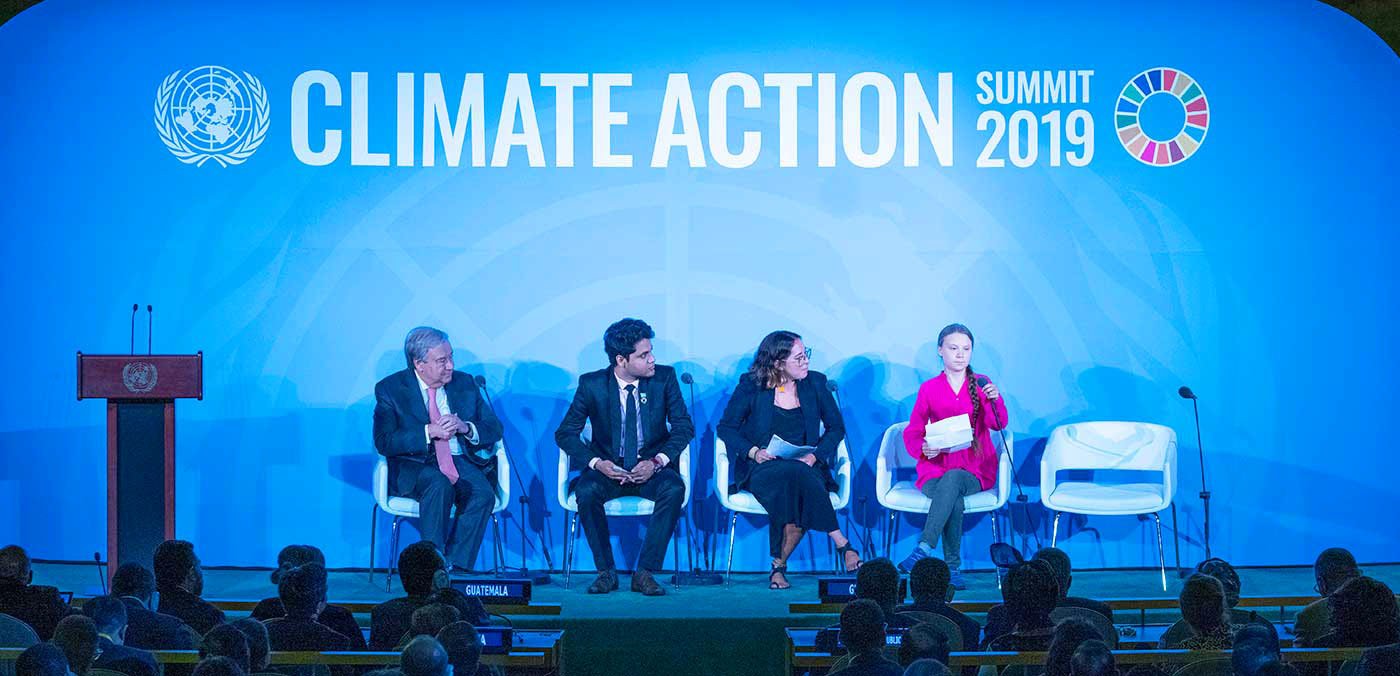Climate Protection: Disappointment but Also Reason for Hope

Millions of people taking to the streets all over the world, a climate package from the German Federal Government that is under fire from virtually all sides and young people’s urgent appeals to the governments of member countries of the United Nations in New York — anyone who still thinks that effective climate protection can be postponed is wrong. But I also think that, despite the valid criticism, the two important climate events that took place last week – the presentation of the German Federal Government’s climate package and the results of the UN Climate Action Summit – represent a start, at least in some areas. It is now a question of maintaining pressure to give us a chance of achieving the 1.5-degree goal.
A 20-hour marathon negotiating session, and this is the result? A CO2 price of €10 Euro per metric ton as of 2021, stricter distance rules for wind turbines instead of a concrete expansion path for renewable energies and in many areas few binding individual measures — there was considerable outrage as the German Federal Government presented its climate package to the general public on September 20. And it has not stopped since then. I am also disappointed by the package in many respects and I very much doubt that it will enable us to achieve our climate targets for 2030. However, at the same time, the paper does contain some good approaches that must now be swiftly refined and implemented in law. Otherwise, unclear wording and expressions of will in some cases will lead to uncertainty and delays in investments — which is toxic for economic development.
CO2 pricing is a minor sensation
First of all, it is a minor sensation that the German Federal Government has agreed to CO2 pricing at all. For large parts of the Christian Democratic Union (CDU), this was unthinkable until only recently. It was therefore uncertain whether this aspect would be included in the climate package. Of course, the price of €10 per metric ton of CO2 is much too low. This is now the view of not only climate activists, but even Deputy Leader of the CDU Andreas Jung, who is calling for an increase to the very reasonable price of €180 per metric ton by 2030. Thus, there is good reason to be hopeful that changes will be made here.
Another positive aspect is that fixed CO2 quotas are being assigned to individual sectors for the first time thanks to the climate package. The Climate Cabinet and an independent expert commission are to check that the targets are achieved. If the emissions do not decrease fast enough in a sector, the responsible Ministry must present immediate countermeasures. However, it is irritating that there are no specific figures on the impact of the individual measures on climate protection in the long version of the German Federal Government’s draft. The German Federal Government urgently needs to rectify this.
Solar subsidy cap scrapped
For the photovoltaics industry, it is also positive that the 52-GW cap on solar energy subsidies has been scrapped. If this is implemented quickly by law, the way is paved for the further expansion of PV. At the same time, a clear expansion path for renewable energies that would provide a framework for the much-needed increased installation is missing. Here, and in other areas, we must insist that improvements be made the climate package.
Germany is an international role model
Even if Germany, as critics often suggest, contributes only a small portion of the world’s CO2 emissions, it serves as an important international role model as one of the leading global economic powers. This was once again made clear at the UN Climate Action Summit in New York last week. Federal Chancellor Angela Merkel was one of the most important speakers there. She called on global leaders to follow the advice of scientists and to come together to overcome this global challenge. According to the Federal Chancellor, it was the duty of industrialized countries as the principal perpetrators of the climate crisis to use innovation, technology and financial resources to stop global warming.
In December, the heads of state and government will meet again at the UN Climate Change Summit in Chile. Here, it will become apparent just how important the fight against the climate crisis is to the global community. Until then, there is much still to be done by national and international politicians in terms of climate protection. This includes, in particular, doing the “homework” that UN Secretary-General Antonio Guterres has given the G20 countries so that they can achieve their climate goals. It is very important that we all accompany them critically with the global climate movement and remind them again and again of their great responsibility.


Feel free to contribute!